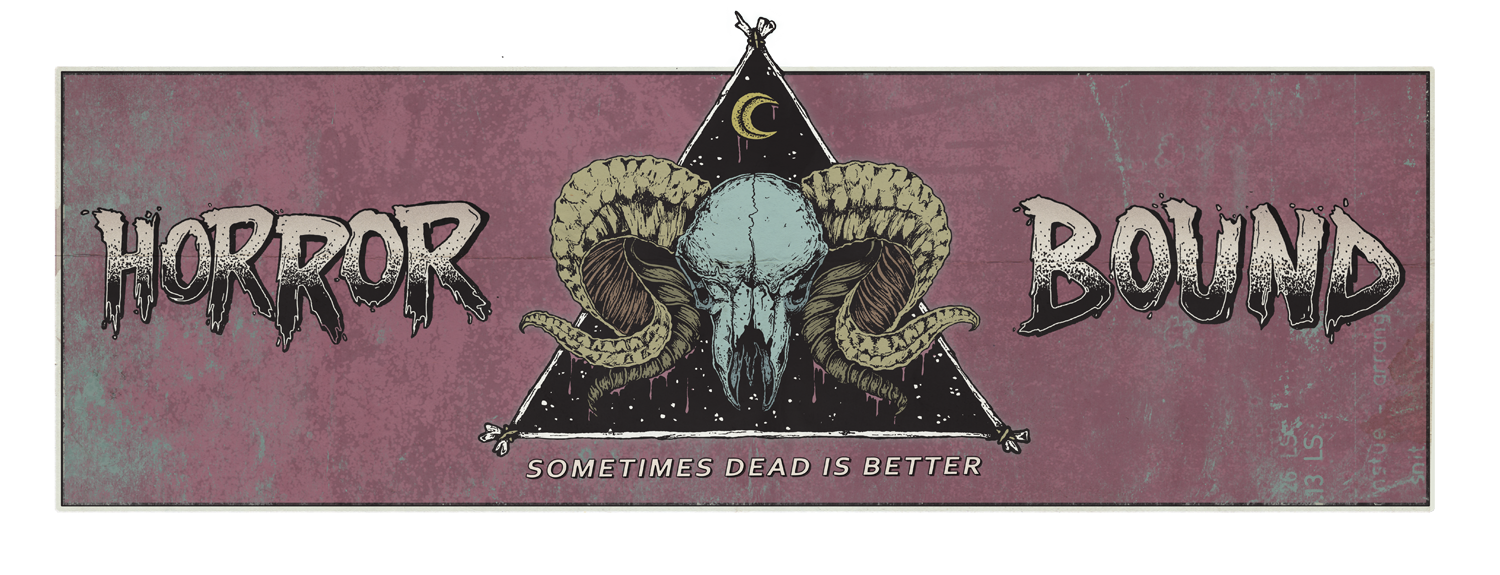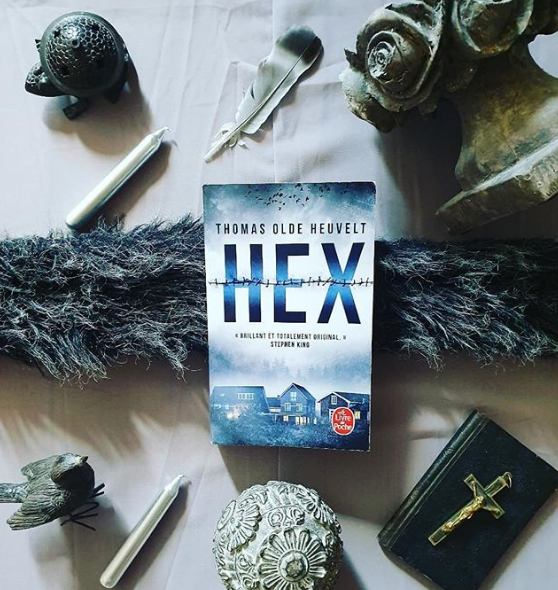Hex - A Double Toil and Trouble Review
Hex by Thomas Olde Heuvelt is one of those books that I’ve heard suggested by people all the time but never got around to reading it. It’s always listed as a book with actual scares in it or one that takes the witch trope and moves it in a new direction. Usually I jump all over books that are recommended that much, but for whatever reason, I never got around to reading Hex. It was a mistake I will hopefully not make again.
While I’d heard lots of recommendations about the book I managed to avoid learning anything about the plot itself other than that it was about a witch. What I did not expect or realize was the modern setting the story takes place in. While the setting actually made the story more enjoyable, I had to change my expectations as I read and it took me a little bit to get into the book. Once the story starts to unfold however, it’s hard not to get drawn in and invested in the characters and the reading goes quickly once that happens.
The town of Black Spring appears to be a normal small town in upstate New York. But the town is haunted by a 17th century witch. Using technology, residents of the town keep tabs on the witch and try their best to keep outsiders from seeing her. Her eyes are sewn shut and everyone in town knows that they must remain that way. The town runs smoothly other than the fact that people who live there cannot leave the town for too long without becoming violent towards themselves or others, as part of the curse the witch as put on the town. Because of this, teenagers in the town begin to get restless and try to push back against the witch to see how much they can push the limits of the curse.
The idea for this novel is obviously very unique but the entire time I was reading it, I was reminded of Stephen King’s Pet Semetary. I usually try to avoid complete spoilers but in order to discuss this, I’ve got to talk about some major events in both books. Even prior to the last third of Hex I felt as though the story and the major events in the book were similar to Pet Semetary. The story revolves around a family who moved to an area without knowing much about it. The town has a history that newcomers might not know about or understand the way other locals would. The supernatural forces in each book are old and have persisted much longer than the immediate time frame of the story being told. In each book a family pet dies and then comes back to life. And finally in each book we see a parent forced to deal with the death of a child and make rash decisions based on that death.
In both books, the overriding theme is grief and how the characters deal with it. Steven in Hex and Louis Creed in Pet Semetary both deal with the death of a child by attempting to bring the child back to life. Steven does this by asking the resident witch to bring his son back to life. As part of this, she requests that he remove the stitches that have kept her eyes closed for so many years. This brings about the downfall of the town. Steven knew this would happen, but chose to ignore the consequences of his actions because the grief he felt over the loss of his son was too great.
Both books get the reader invested in the family that they follow, which sets up the emotional response of the fathers. While the decisions made by each have destructive outcomes, the reader can’t help but understand the thought behind the choices they made.
Hex was a great book that brought a lot of emotion and a lot of scares to the table. I highly recommended it. Solid 4/5 from me on this one.
-Joe
Black Spring has a secret. A secret that everyone in the town knows. For near three and a half centuries, the Black Rock Witch Katherine van Wyler has been stalking Black Spring in an echo of her past life. Fear forced the inhabitants of Black Spring to suture her eyes and mouth closed; fear of the curse that she will lay on the town if ever she’s freed. But Black Spring is not some land that time forgot. On the contrary, they have every amenity of the current times, including a state-of-the-art security and surveillance system called HEX, that the citizens of Black Spring use to track Katherine’s sightings and whereabouts, keeping their secret from the outside world.
Why would the people of Black Spring stay in a town cursed and haunted by an ancient witch? They don’t have a choice. Too much time spent outside city limits causes a longing to be back home, accompanied by melancholy feelings and suicidal tendencies. Those lucky enough to return home find relief; those that stay away find release. Permanent release. Being trapped out in the open can be frustrating, particularly for the young and adventurous, or those holding onto a grudge. Decisions are made, consequences are reaped, and the town and its inhabitants may never recover.
Hex from Thomas Olde Heuvelt is an interesting take on the witch’s curse story. Everyone in the town knows about her, some even giving her nicknames like Grandma. Some fear her, some secretly worship her, others wish her harm. The town itself seems torn between the present and the Puritanical times of the Salem witch trials. Even a town elder closely resembles the name of Cotton Mathers (Colton isn’t far off). Heuvelt does a fantastic job of combining these two eras in what seems to be a functional way. I think he shows the frustration that comes with being trapped or bound to a place, particularly for those that don’t have a choice. Readers get a glimpse into the minds of folks resigned to their fate in the town, and the anger and angst of the younger citizens wanting a way out. The town and mood are dark and foreboding, but not oppressive, showing that “normal” family life can be had even if a witch appears out of nowhere in the living room.
Heuvelt shows readers how the consequences of the past can reap horrific pains in the present. How blindly following the masses can also lead to irrevocable damage, both then and now; how a hive mind or mob mentality could destroy even the tightest knit community. He does get a little heavy-handed in this respect at times, but it doesn’t detract from the story. Overall, I really liked Hex from cover to cover.
-Dave





